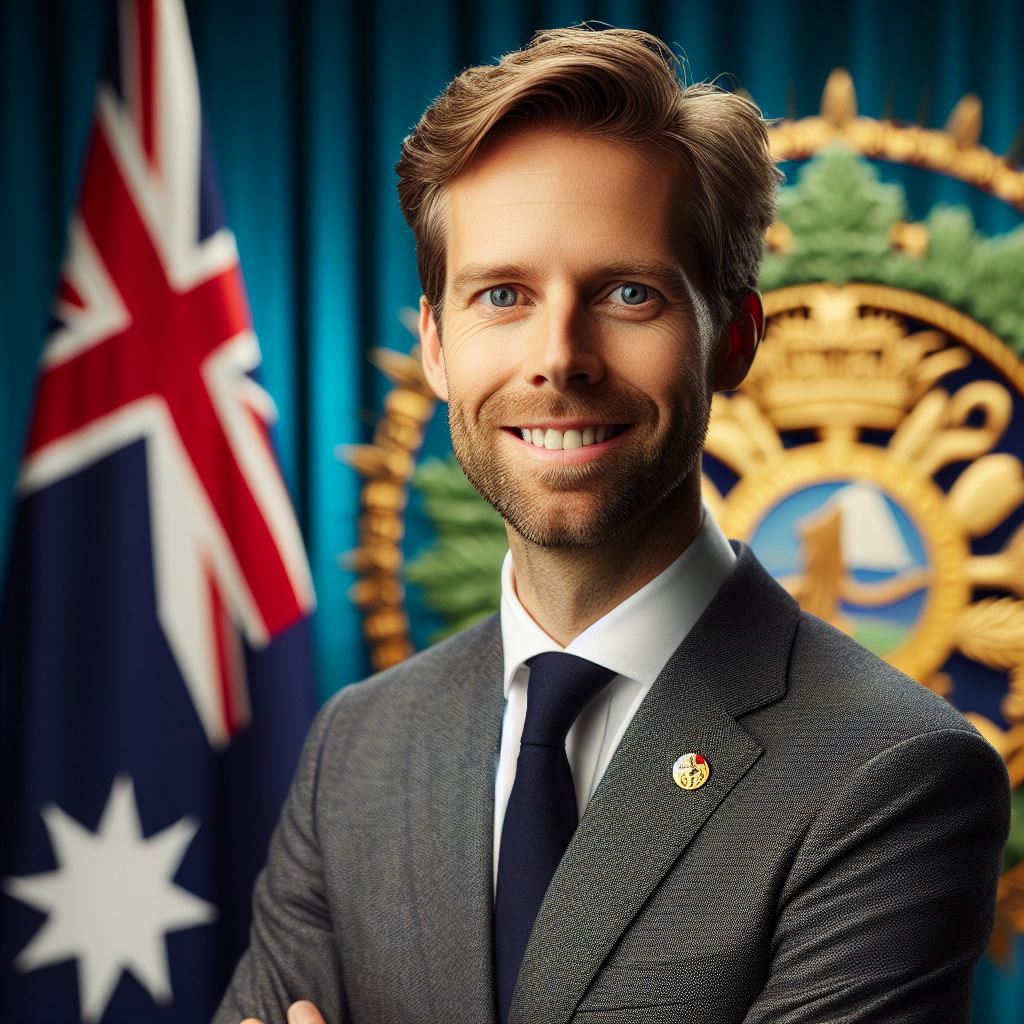Introduction
In the field of diplomacy, possessing essential skills is crucial.
These skills not only enable diplomatic staff to fulfill their duties effectively but also contribute to successful outcomes in international relations.
This blog section will delve into the significance of these skills and provide an overview of what will be covered.
Diplomacy requires a range of skills that go beyond simply engaging in diplomatic negotiations.
Effective communication skills are vital for diplomats to convey their messages clearly and diplomatically.
Negotiation skills play a key role in achieving mutually beneficial agreements during diplomatic interactions.
Cultural intelligence is essential to navigate diverse cultural backgrounds and foster understanding and cooperation.
Language proficiency is crucial in facilitating meaningful communication with foreign counterparts and understanding cultural subtleties.
Adaptability is a fundamental skill that enables diplomats to respond effectively to dynamic and unpredictable situations.
Analytical skills are important for diplomats to evaluate complex issues and make informed decisions.
Leadership skills are necessary for diplomats to drive diplomatic initiatives and guide teams towards achieving common goals.
Diplomatic staff must possess strong interpersonal skills to build relationships and trust with international counterparts.
Lastly, diplomatic staff should have a global mindset and a broad understanding of international affairs.
In review, essential skills are paramount in the field of diplomacy.
Effective communication, negotiation, cultural intelligence, adaptability, analytical skills, leadership, interpersonal abilities, language proficiency, and a global mindset are all essential for diplomatic staff to excel in their roles and contribute to successful diplomatic outcomes.
Communication Skills: The Lifeline of Diplomatic Staff
Effective communication is crucial for diplomatic staff as it is the foundation of their work.
The ability to convey ideas, opinions, and information accurately and clearly ensures successful diplomacy.
There are various aspects of communication skills that are essential for diplomatic staff.
Firstly, verbal communication is important, as it involves expressing thoughts through spoken words.
Diplomatic staff must possess excellent speaking skills to deliver messages effectively and engage in diplomatic negotiations.
A well-articulated speech can make a significant impact, shaping international relations.
Non-verbal communication is another critical aspect.
Diplomatic staff must be aware of their body language, facial expressions, and gestures.
These non-verbal cues can enhance or undermine a message.
Maintaining eye contact, adopting an attentive posture, and using appropriate facial expressions convey sincerity and trustworthiness, essential for building strong relationships on the diplomatic stage.
Written communication is equally vital in diplomatic work.
Diplomatic staff often engage in drafting reports, memos, and diplomatic cables.
Writing skills are necessary to articulate complex ideas clearly and concisely.
A poorly written diplomatic document can lead to misunderstandings or even diplomatic incidents.
Diplomatic staff must be skilled in composing diplomatic correspondence that is politically correct, culturally sensitive, and persuasive.
Examples of how diplomatic staff use communication skills in their work
Diplomatic staff utilize their communication skills in various ways in their work.
Firstly, during diplomatic negotiations, effective communication is crucial for reaching consensus and resolving conflicts.
Through clear and persuasive arguments, diplomatic staff can navigate through differences and find mutually beneficial solutions.
Negotiations can determine the fate of international agreements, trade partnerships, and even peace treaties.
Moreover, communication skills are essential for delivering diplomatic speeches or public statements.
Diplomatic staff often address international audiences, representing their nations and articulating their foreign policies.
A well-crafted speech can sway public opinion, shape international perceptions, and enhance a nation’s image on the global stage.
Being an effective spokesperson is a crucial responsibility for diplomatic staff.
Furthermore, diplomacy often involves dealing with sensitive and confidential information.
Effective communication skills ensure that classified information is properly conveyed to relevant parties while maintaining strict confidentiality.
Diplomatic staff must have the ability to communicate discreetly and securely, ensuring diplomatic secrets are protected.
In the digital age, diplomatic staff must also possess excellent digital communication skills.
Electronic communication, such as emails, video conferences, and social media, has become a prevalent means of diplomatic engagement.
Understanding digital etiquette, adapting communication styles to various platforms, and managing online presence are essential skills in modern diplomacy.
To exemplify the importance of communication skills, let us consider the case of diplomatic negotiations.
During a peace negotiation, skilled diplomats employ effective communication techniques to build trust, resolve conflicts, and achieve mutually acceptable agreements.
By carefully choosing their words, understanding cultural nuances, and listening actively, diplomats can bridge differences and foster meaningful dialogue.
Essentially, effective communication skills are indispensable for diplomatic staff.
The ability to communicate verbally, non-verbally, and in writing enables successful diplomacy.
Diplomatic staff utilize these skills during negotiations, speeches, and while handling sensitive information.
Communication is the lifeline of diplomacy, connecting nations and shaping the course of international relations.
Read: Understanding Public Sector Pay Scales
Cultural Sensitivity
Cultural sensitivity plays a crucial role in the field of diplomacy, as it helps in promoting understanding and building strong relationships between nations. Diplomatic staff ought to be respectful and understanding of different cultures for several reasons.
Promoting Respect and Understanding
- Cultural sensitivity enables diplomatic staff to respect and appreciate the values, customs, and traditions of other cultures.
- By understanding and respecting cultural differences, diplomatic staff can avoid unintentionally causing offense.
- This promotes a positive image of their country and fosters mutual respect between nations.
Enhancing Communication
- Cultural sensitivity aids in effective communication between diplomats and foreign counterparts.
- Being aware of cultural nuances and adapting one’s communication style accordingly helps to avoid misunderstandings.
- Diplomatic staff need to be conscious of non-verbal cues and subtle cultural differences that may affect communication.
Building Stronger Relationships
- Cultural sensitivity is key to building trust and establishing strong relationships with foreign counterparts.
- By showing respect for cultural differences, diplomatic staff can create a favorable environment for cooperation and collaboration between countries.
- Deepening these relationships can lead to fruitful partnerships in various fields, such as trade, economy, and security.
Resolving Conflicts
- Cultural sensitivity plays a significant role in resolving conflicts diplomatically.
- Understanding the cultural backgrounds and perspectives of different parties involved enables diplomatic staff to find common ground.
- By acknowledging cultural sensitivities, diplomats can navigate sensitive issues and work towards finding mutually acceptable solutions.
Multilateral Diplomacy
- In the era of globalization, diplomats often engage in multilateral negotiations and collaborations.
- Cultural sensitivity is essential in these scenarios, as it helps diplomats navigate diverse cultural perspectives and interests.
- By embracing cultural diversity, diplomats can effectively represent their nation’s values while working towards shared goals.
Cultivating Soft Power
- Cultural sensitivity enhances a country’s soft power, which refers to its ability to influence others through attraction rather than coercion.
- By demonstrating respect for different cultures, diplomatic staff can project an image of inclusivity and understanding.
- This can contribute to cultivating a positive perception of their country and attract support and cooperation from global partners.
Basically, cultural sensitivity is paramount for diplomatic staff in today’s interconnected world.
By being respectful and understanding of different cultures, diplomatic staff can build strong relationships, enhance communication, resolve conflicts, and promote their country’s soft power.
Cultural sensitivity plays a crucial role in advancing diplomacy and fostering global cooperation.
Read: Top Skills Needed in Government Jobs
Negotiation and Diplomacy
Effective negotiation skills are crucial for diplomatic staff as they navigate complex international relations.
The Importance of Negotiation Skills
- Diplomatic staff rely on negotiation to resolve conflicts and foster positive relationships between nations.
- Effective negotiation skills enable diplomats to find common ground and reach mutually beneficial agreements.
- In diplomacy, negotiations help maintain peace, promote economic cooperation, and address global challenges.
- Without strong negotiation abilities, diplomatic staff would struggle to advance their nation’s interests effectively.
- Through negotiations, diplomats can influence global policy, protect national security, and promote human rights.
Utilizing Negotiation Techniques
- Diplomats engage in strategic planning and careful preparation for negotiations.
- They conduct thorough research to understand the objectives, positions, and interests of all parties involved.
- Active listening and empathy are key skills used by diplomatic staff to build rapport and establish trust.
- They employ effective communication techniques, such as clear and precise language, to convey their points effectively.
- Flexibility and creativity are crucial in finding innovative solutions during negotiations.
Examples of Successful Negotiation Strategies
- During the Cuban Missile Crisis, diplomatic negotiations between the United States and the Soviet Union prevented nuclear war.
- The Camp David Accords in 1978 resulted in a peace treaty between Israel and Egypt, ending decades of conflict.
- The Iran Nuclear Deal, achieved through diplomatic negotiations, aimed to prevent Iran from developing nuclear weapons.
- The Paris Agreement on climate change brought together 195 nations, showcasing diplomacy’s ability to address global challenges.
- Trade agreements, such as NAFTA and the EU Single Market, demonstrate successful negotiations in promoting economic cooperation.
In general, negotiation skills are vital for diplomatic staff to effectively represent their nation’s interests on the global stage.
By employing various negotiation techniques, diplomats can achieve mutually beneficial outcomes, resolve conflicts, and foster positive relationships.
History has shown numerous successful negotiation strategies in diplomacy, preventing war, promoting peace, and addressing global issues.
As diplomacy continues to play a crucial role in international relations, diplomats must hone their negotiation skills to navigate complex challenges and promote their country’s objectives.
Read: Public Service Paths: Your Guide to Success

Analytical and Problem-Solving Skills
Diplomatic staff require strong analytical and problem-solving skills for several reasons.
Firstly, these skills are essential in understanding the intricacies of complex international issues.
Diplomacy often involves dealing with multifaceted challenges that require a deep analysis and careful consideration of multiple factors.
In diplomatic contexts, analytical skills help identify the root causes and drivers of conflicts or disagreements.
By analyzing the different components of a situation, diplomatic staff can gain a comprehensive understanding of the underlying reasons behind conflicts.
This understanding then enables them to develop effective strategies and solutions to address the issues at hand.
Problem-solving skills are equally important for diplomatic staff.
They enable diplomats to navigate through obstacles and find innovative solutions to complex problems.
Diplomats often face diplomatic crises that require quick thinking and decisive action.
By applying their problem-solving skills, diplomatic staff can effectively manage and resolve these crises, preventing conflicts from escalating further.
Examples of how diplomatic staff apply analytical and problem-solving skills in different diplomatic contexts
In the field of diplomacy, analytical and problem-solving skills are not limited to addressing conflicts alone.
Diplomatic staff also rely on these skills to comprehend and interpret complex information.
For example, when negotiating treaties or agreements, diplomats analyze legal texts, identify potential pitfalls, and propose constructive amendments.
Moreover, diplomatic staff use analytical skills to assess the impact of various policy decisions.
They analyze data, evaluate different scenarios, and predict possible outcomes.
This analysis helps diplomats make informed decisions that align with their country’s interests and goals.
In addition to their analytical and problem-solving skills, diplomatic staff apply these skills in a variety of diplomatic contexts.
For instance, during negotiations, diplomats use analytical skills to understand the priorities and concerns of other countries.
This understanding allows them to find common ground and reach mutually beneficial agreements.
Furthermore, in conflict resolution, diplomats employ problem-solving skills to facilitate dialogue and mediation between conflicting parties.
By analyzing the underlying causes of the conflict, they can propose solutions that address the root issues and satisfy the needs and aspirations of all parties involved.
How analytical skills help diplomats
In economic diplomacy, analytical skills help diplomats identify opportunities for trade and investment.
They assess market conditions, analyze economic data, and identify potential areas of collaboration.
Through their problem-solving skills, diplomats can navigate through trade barriers, negotiate favorable agreements, and promote economic growth.
In summary, strong analytical and problem-solving skills are indispensable for diplomatic staff.
These skills enable diplomats to understand complex issues, identify the underlying causes of conflicts, and propose effective solutions.
By applying their analytical and problem-solving abilities in various diplomatic contexts, diplomats can successfully navigate through challenges and promote peace, cooperation, and development on the international stage.
Read: Day in the Life of an Aussie Public Servant
Flexibility and Adaptability
Flexibility and adaptability are essential skills for diplomatic staff, allowing them to navigate the complex and ever-changing world of international relations.
In the diplomatic field, being flexible means being open to new ideas, approaches, and perspectives.
Diplomats need to be able to adapt their strategies and tactics to fit different situations and cultures.
They must be willing to think creatively and find innovative solutions to problems.
One of the key reasons why flexibility and adaptability are crucial for diplomats is the need to adjust to different environments.
Diplomatic staff are often posted abroad, where they are exposed to different cultures, languages, and customs.
They need to be able to quickly understand and adapt to these differences, building rapport and trust with their counterparts.
Adapting to different situations is also vital for diplomatic staff.
They must be able to respond effectively to crises, whether it is a conflict or a natural disaster.
This requires diplomats to think on their feet, remain calm under pressure, and make quick decisions based on the available information.
Your Personalized Career Strategy
Unlock your potential with tailored career consulting. Get clear, actionable steps designed for your success. Start now!
Get StartedExamples of how diplomatic staff demonstrate flexibility and adaptability in their roles
Diplomatic staff demonstrate flexibility and adaptability in various ways.
Firstly, they are constantly learning and improving their skills.
They attend language classes, cultural training, and workshops to enhance their understanding of different cultures and increase their ability to adapt.
Secondly, diplomats often work in teams, collaborating with colleagues from different backgrounds.
This allows them to benefit from diverse perspectives and ideas, fostering a more flexible approach to problem-solving and decision-making.
Thirdly, diplomatic staff often engage in negotiation and mediation.
These processes require diplomats to be flexible and adaptable, as they navigate complex power dynamics and find common ground between parties with different interests.
Furthermore, diplomats are often required to represent their countries in international forums and meetings.
This entails advocating for their country’s interests while also understanding the positions and concerns of other nations.
Diplomats must be able to adapt their communication styles and strategies to effectively convey their message and build constructive relationships.
Finally, diplomats must be able to adapt to changes in the political landscape.
As governments change, diplomatic staff may need to adjust their priorities and approaches to align with new policies and strategies.
This ability to adapt and remain flexible is crucial for maintaining effective diplomatic relations over time.
In essence, flexibility and adaptability are essential skills for diplomatic staff.
By being open to new ideas and approaches, adjusting to different environments and situations, and demonstrating flexibility in their roles, diplomats can effectively navigate the complex and ever-changing world of international relations.
Emotional Intelligence: The Key to Successful Diplomacy
Emotional intelligence plays a crucial role in the success of diplomatic staff. It is more than just being aware of one’s emotions; it involves understanding and managing those emotions effectively, as well as empathizing with others.
A diplomat needs to be able to read people and situations accurately, adapt to changing circumstances, and build strong relationships. Here’s why emotional intelligence is essential for diplomatic staff:
Relationship Management
- Diplomatic staff with high emotional intelligence excel in building and maintaining relationships.
- By understanding their own emotions and those of others, they can effectively navigate through complex diplomatic networks.
- They can establish trust and rapport, which are the foundations of any successful negotiation or alliance building.
Conflict Resolution
- Emotionally intelligent diplomats have the ability to manage conflicts effectively.
- They can identify the root causes of conflicts and find mutually acceptable solutions.
- Instead of escalating tensions, they focus on fostering understanding and collaboration.
Self-Management
- Diplomatic staff must possess self-awareness and self-control to thrive in high-pressure situations.
- Emotionally intelligent diplomats can remain calm and composed, even in the face of adversity.
- They can regulate their emotions and respond thoughtfully, rather than reacting impulsively.
Cultural Sensitivity
- Emotional intelligence allows diplomats to navigate cultural differences and adapt to diverse environments.
- They are able to understand and appreciate different perspectives, which is essential for effective diplomacy.
- By being culturally sensitive, they can avoid misunderstandings and build stronger international alliances.
Persuasion and Negotiation
- Diplomatic negotiations require effective persuasion and negotiation skills.
- Emotionally intelligent diplomats understand the interests and motivations of all parties involved.
- They can frame their arguments in a way that appeals to the emotions and values of others.
- By empathizing with the concerns of different stakeholders, they can find win-win solutions.
In fact, emotional intelligence is a vital skill for diplomatic staff. It enables them to build relationships, manage conflicts, negotiate effectively, and navigate diverse cultural contexts.
Without emotional intelligence, diplomats risk damaging relationships, escalating conflicts, and compromising the success of their diplomatic missions.
By harnessing emotional intelligence, diplomatic staff can strengthen alliances, foster understanding, and promote peace and cooperation on a global scale.
Gain More Insights: Australian Diplomats: Key Responsibilities
Delve into the Subject: Environmental Policy and AU Analysts’ Role
Conclusion
In closing, our exploration into the intricate world of diplomatic careers has illuminated the paramount importance of possessing essential skills for diplomatic staff.
From adept communication and cultural fluency to nuanced negotiation and strategic thinking, these skills form the bedrock of successful diplomatic endeavors.
Summarizing the key insights, we’ve underscored that effective diplomacy transcends conventional protocols.
It requires a dynamic skill set that enables diplomats to navigate the complexities of international relations with finesse and tact.
The ability to forge meaningful connections, understand diverse perspectives, and engage in strategic problem-solving emerges as the hallmark of diplomatic prowess.
The significance of these skills cannot be overstated.
They are not merely desirable attributes but are integral to the very fabric of diplomatic success.
Diplomats, as global ambassadors, are entrusted with the responsibility of fostering understanding and collaboration on an international scale.
Their efficacy in this role hinges on their proficiency in the essential skills discussed in this blog post.
Aspiring diplomats and those intrigued by the world of international relations are encouraged to actively cultivate these skills.
The journey towards a successful diplomatic career is paved with continuous learning and development.
Embrace opportunities for cultural immersion, hone your linguistic abilities, and engage in scenarios that test your negotiation and strategic thinking skills.
In essence, the path to a rewarding career in diplomacy is illuminated by a commitment to mastering these essential skills.
As you embark on this journey, remember that each skill acquired is a step closer to making a lasting impact on the global stage.
The world of diplomacy awaits those who are not just equipped with knowledge but are adept in the skills that transform diplomatic aspirations into tangible diplomatic achievements.




